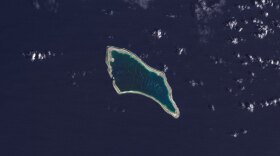There's a change in the law when it comes to the media in one Pacific island nation.
Fiji’s Prime Minister said his cabinet is working to repeal a law that calls for prison time and fines for content considered to be against the national interest.
When Sitiveni Rabuka was running for prime minister of Fiji last year, one of his campaign promises was to remove restrictions on the press.
It would be a positive development for press freedom in the Pacific nation, as China is competing with the U.S. for influence in the region.
Radio Free Asia, a non-profit news service funded by the U.S. government, has covered the story. They reported that the Pacific island's media was largely prevented from directly covering a June 2022 tour of 10 Pacific countries by China’s foreign minister at the time, Wang Yi.
Rabuka said media freedom and freedom of expression are the “oxygen of democracy,” which allow people to hold their government accountable.
Rabuka’s election victory ended the rule of Prime Minister Frank Bainimarama, a former military leader who came to power in a 2006 coup.
The media law, imposed in 2010, allows prison sentences of up to two years for content judged to be against the public or national interest.
Rabuka himself led two coups in 1987, but now says he’s a reformer.
Political observers say the fate of the media law could be a litmus test of Rabuka’s commitment to repairing Fiji’s democratic credentials.
It wasn’t clear when parliament would vote on the repeal bill.




